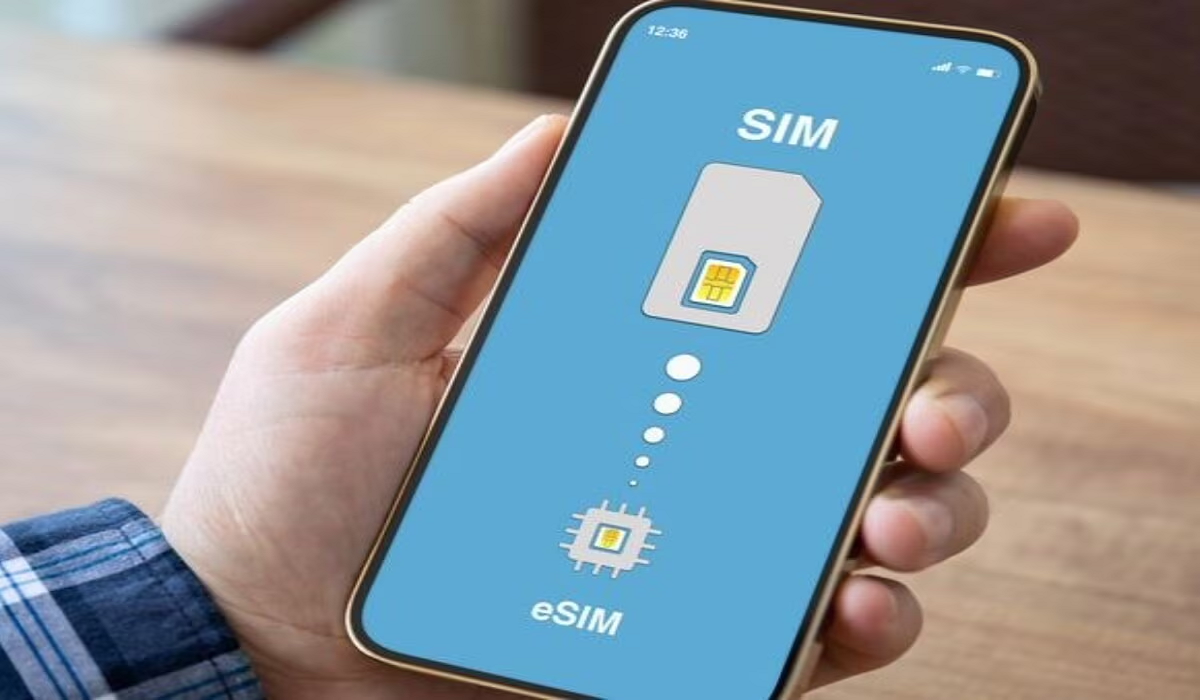The number of phones with eSIM is gradually increasing. eSIM is quite different from physical SIM. It is embedded in the device. The biggest feature of eSIM is that users can save many profiles i.e. different numbers and networks in it and use it as per the need.
Smartphones have become very advanced in the last few years. Users are liking the new and high-tech features coming in the phones. eSIM is also one of these features. Apple launched its iPhone 14 series with eSIM feature. At present, there are phones of many other companies in the market, in which eSIM support is being given. eSIM is a digital version of the physical SIM card. It is not installed separately in the phone like a physical SIM. It is built-in in the device. Rewrite facility is also available in eSIM. With this, you will start getting the service of another operator in this eSIM. There is no hassle of changing it like a physical SIM. The special thing about eSIM is that it takes less space in the phone and the processing speed of the device is also good. It also gives better security to the user. Let’s know about eSIM in detail.
What is eSIM?
eSIM is quite different from physical SIM. It is an embedded or built-in SIM. Its work is the same as that of a physical SIM. It identifies the user and connects him to the service of the telecom operator. This entire process is digital. To use the network service, the data plan of eSIM needs to be downloaded and installed. eSIM is embedded in the device and the advantage of this is that users can switch between networks through settings.
How does eSIM work?
The way eSIM works is the same as that of a normal SIM. In this, you have to sign up for the service of the telecom provider. After this, you have to download a SIM profile in the eSIM of your phone. Apart from your phone number, this profile will contain data plan and other information, which are necessary to connect to the network. The biggest feature of eSIM is that users can save many profiles i.e. different numbers and networks in it and use it as per the need. To use the service of different operators in physical SIM, SIM card has to be changed or number ported.
These devices have eSIM support in India
Phones with eSIM support are gradually becoming popular in India. Right now this feature is being seen only in expensive devices. The phones in India in which eSIM is being offered include Samsung Galaxy S24 series, iPhone 16 series, iPhone 15 series, iPhone 14 series, Motorola Edge 50 Ultra and Google Pixel 9 series devices.
These operators are offering eSIM service
Three major telecom companies of India – Jio, Airtel and Vi are offering eSIM service. You can contact your service provider for eSIM service. To activate it, users have to follow some steps. For service activation, operators usually send a QR code on email, which users have to scan. Keep in mind that there will be some difference in the activation process of each operator.
Some disadvantages of using eSIM:
eSIM service has many advantages, but it also has some drawbacks. Let us now know about these drawbacks.
1- Difficult to change the phone
If there is a problem in a phone with a physical SIM, then the SIM can be removed and inserted in another phone to connect to the world. Doing this in devices with eSIM is a bit difficult. eSIM users will have to download the entire eSIM data from the cloud to use another phone.
2- Lack of devices with eSIM support
eSIM is being offered only in flagship devices of companies like Apple, Google and Samsung. It has not yet entered the budget and mid-range phones. If you also want to enjoy eSIM in a low budget, then you may have to wait a little longer.
3- Can be easily tracked
User privacy is slightly affected in devices with eSIM. Physical SIM can be separated from the device to prevent location tracking, but eSIM is embedded in the phone and hence it cannot be separated.
